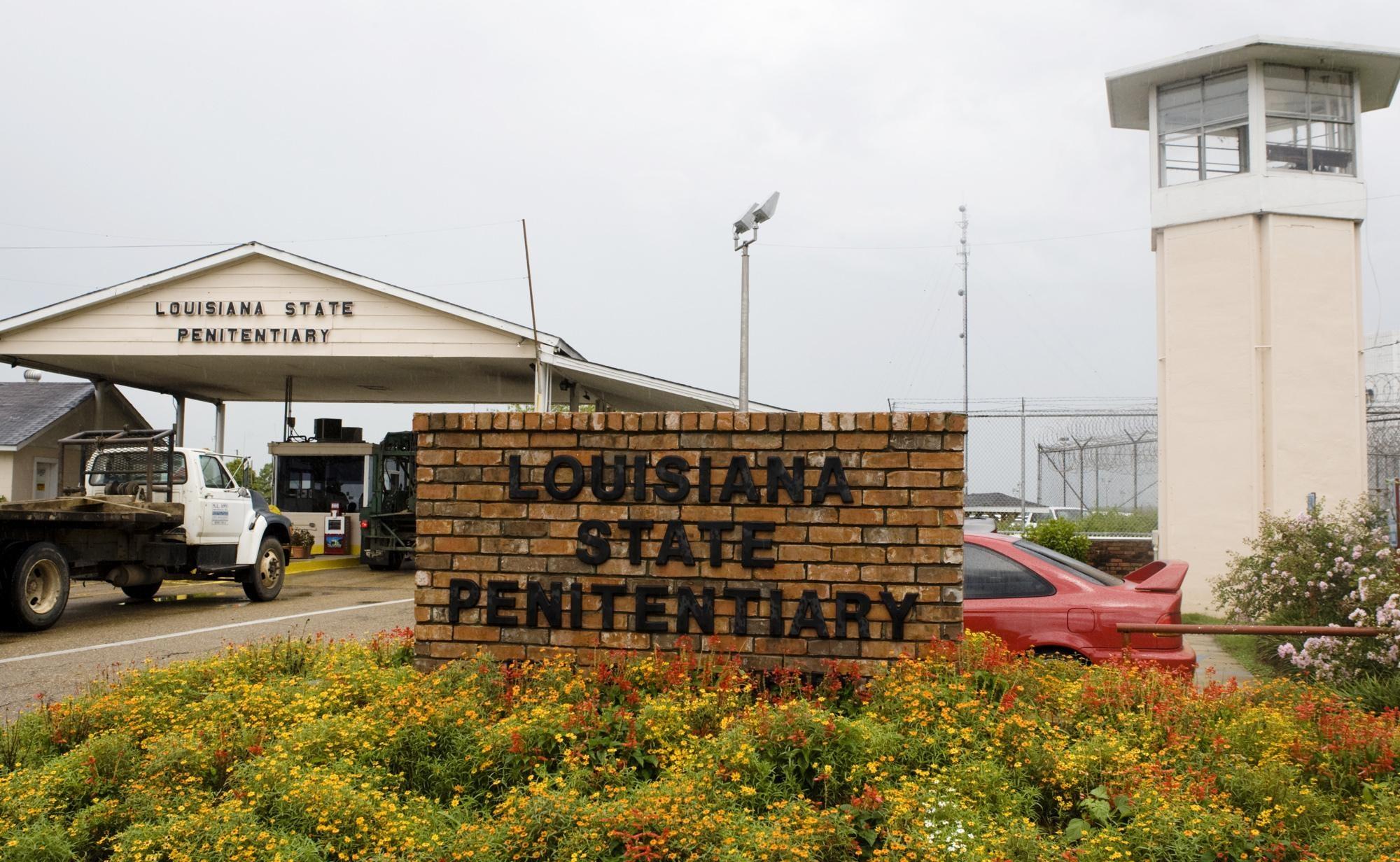Morehead wrote the statement as part of a lawsuit brought by incarcerated people, who are objecting to conditions on Angola's "farm line" — an agricultural assignment at the West Feliciana Parish prison.
Those on the "farm line" describe work units comprising about 50 people per day, attorneys said. In pleadings and interviews, lawyers describe the assignment as marked by tedious fieldwork staged in blistering Louisiana summers.
The sweltering conditions — and meager protections — put people, including people with disabilities, in danger, they allege. In the plaintiffs' telling, the threat of being sent to the "farm line" is used as a punishment.
"One could just imagine having an armed guard standing over them while, for hours a day, they have to pick grass with their fingers," said Samantha Kennedy, executive director of the Promise of Justice Initiative, a legal group working on the case.
Kennedy said if incarcerated people refuse to comply with the work they're asked to do, they risk consequences, such as being sent to disciplinary segregation or not being paid the few cents an hour that help pay for necessities in prison, such as toilet paper.
A spokesperson for Louisiana's prison system didn't supply a comment for this story. In court filings, its attorneys have said people working the "farm line" have access to water, shade and rest periods and have filed motions asking a judge presiding over the case to dismiss claims.
Much like people on the outside, Kennedy said people who are in prison want to be productive. But they want to choose the work they're best suited for, and where they can feel they can best contribute.
Instead, at Angola and other prisons, "people are stripped of their dignity, of their ability to control what happens to their bodies," she said. "They're put in grave danger every day."
The lawsuit, which counts the grassroots group Voice of the Experienced among its plaintiffs, is among at least three challenges to prison labor now percolating in the Gulf South. A few such cases now are winding through Alabama and Louisiana court dockets.
They illustrate a growing movement among people in prison, who are questioning if they can be forced to work against their will. That notion has unique resonance in the South, where the region's haunted history feels close at hand, experts and advocates say.
They point out that the region's prisons are disproportionately filled by people of color, especially Black people, some of whom say being made to work at the threat of discipline has historic parallels.
"The question that these prisoners are raising is, is this not slavery?” said Robert Chase, a historian at Stony Brook University in New York who has written a book about prison labor. "They're bound to the system. They're coerced to labor. ... And in many cases, they're given either very nominal pay or no pay at all."




